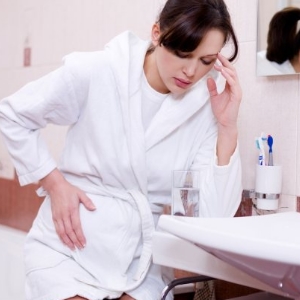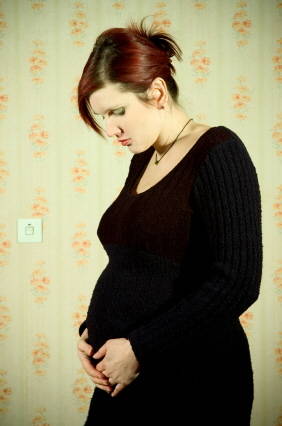Last menstrual period date:
Thanks to those “groovy” movies they show us in middle school Sex Ed classes, it takes a very long time to shake the myth that our periods tick like clockwork, humming along smoothly, and every 28 days at 9am it’s “cuckoo! cuckoo!”.

As the saying goes, “it ain’t necessarily so”. Women can have periods that are every 18 days, 21 days, 29 days, 32 days, even as far apart as 35 days. Many women don’t have an every “x” days period – they might have one, then the next 28 days later, the one after that happens in 17 days, the one after that is 31 days later, and so on. While this is a murderous inconvenience, it’s not indicative of a problem in the vast majority of cases (sometimes, though, problems with hormones, stress, diet, etc., can throw regularity out the window).
And of course there’s the PMS. We have an uncomfortable relationship with premenstrual symptoms. We know they happen. Humans have known for millennia that women get a little off-balance at certain times of the month – heck, they might one day find cave graffiti depicting a smiling, happy woman metamorphosing into a Sabre-toothed Tiger. But even while we joke about it, we also penalize it – “Control yourself!” is the general tone, because of course it’s really easy to run counter to biological imperatives. When a woman stays home from school or work because of her PMS, most companies will not acknowledge it as a genuine sick day – she’s not “sick”, she’s just being “biological”.
PMS is real. It exists and is just as valid as migraines, arthritis, neuralgia, and angina. It hits women both physically, with:
- cramps
- headaches and migraines
- backache, joint pain, and muscle pain
- acne and blotchy complexion
- bloating, puffiness, and weight gain
- bras that, overnight, no longer fit and cannot be worn because they irritate suddenly-sensitive boobs which, by the way, might also be leaking a bit (especially if the nipple is compressed)
- extra toilet time because of the runs or the stoppages
- feeling constantly exhausted and either sleeping far more than normal or being completely unable to sleep due to restlessness or crazy dreams
- and food binges, usually on salty or sweet foods
and mentally, with:
- sexual desire swinging either way (more than usual or, more commonly, much less than usual – even gone)
- feelings of wanting to be left alone
- aggression, over-reaction, less able to handle frustration
- unable to focus or think clearly, memory impairment
- mood swings and irritability
- and depression, including anxiety, sadness, and even despair
And those are just the most common of over a hundred symptoms that have been linked to PMS! Some women deal with a consistent set of symptoms every month, some have none, and some have mild to no symptoms one month and are foaming at the mouth the next.
But wait a minute… those symptoms do sound like something else, don’t they?
Yes, the early stages of pregnancy are also typified by virtually the identical symptomology and it’s for the same reason: hormone fluctuation in the woman’s body. This is why when a woman gets PMS yet fails to have a period, the first thought is “OMG! Pregnancy!!!” Interestingly enough, this same gut reaction applies even if she’s not had sex since her period.
The truth is, there are many reasons for a woman to experience PMS with no period and all but two of them are not pregnancy. Some examples:
- Being nutritionally unbalanced and then adding insult to injury with too much junk food, coffee and other caffeinated beverages, and drinking.
- High levels of stress or anxiety
- Using hormonal contraception
- Certain medical conditions such as PCOS (Polycystic Ovarian Syndrome) or diabetes
- Exercising, a condition called “orthorexia nervosa” that is in the same body dysmorphic dysfunction class of disorders as anorexia nervosa
- Body fat levels that are too low to allow a period to happen.
- Weight swinging up and down
- Prescriptions such as high blood pressure pills or diabetic medication
- The beginning of menopause – for some women, this can happen in their early 40s – or premature failure of the ovaries.
- Anemia, such as iron deficiency, vitamin B deficiency, or copper deficiency
If you were expecting your period and it’s not happening, your best plan of action is to go see your doctor, especially if you’ve got other symptoms such as sharp pain or a high fever (which are not part of normal PMS). If it’s happening more often than not or even on a consistent basis, your doctor will be able to run tests and determine what is going on. For more information on this, including things you can do to help cope with the symptoms, check out this page
My content




